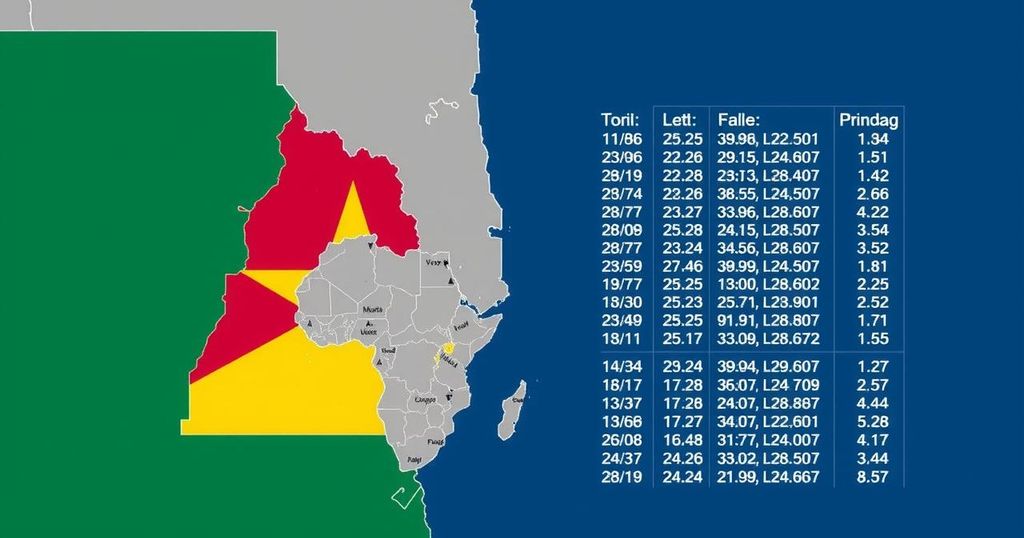EU Identifies Electoral Irregularities in Mozambique Amid Growing Unrest
The EU reports that Mozambique’s election results have been manipulated, with evidence of serious irregularities, as violent protests erupt following the killing of two political figures associated with opposition candidate Venâncio Mondlane, who claims government complicity in their deaths. The electoral commission’s website is inactive due to a cyber-attack, raising concerns about transparency, while unrest spreads across major cities amid calls for further protests.
The European Union (EU) has expressed concerns regarding the integrity of Mozambique’s recent election results, citing evidence of manipulation and irregularities during the counting process. Observers reported instances of “unjustified alteration of election results at polling station and district level,” prompting calls for the electoral bodies to ensure a transparent and credible tabulation process. This scrutiny comes amid growing unrest in Mozambique, characterized by protests led by independent presidential candidate Venâncio Mondlane, who is accusing the government of political violence following the fatal shooting of his lawyer and another political figure. As the official results from the October 9 elections are scheduled to be released, the backdrop of violence and accusations has created tension in the nation, where Mondlane has reported that the security forces were responsible for the targeted killings, an allegation they deny. Furthermore, claims of vote-buying and voter intimidation have arisen, drawing criticism from international observers, including the US-based International Republican Institute. Despite attempts by the electoral commission to publish results online, a cyber-attack rendered their website inactive, raising questions about electoral transparency. In response to the situation, Mondlane has mobilized protests demanding accountability for the violent actions against his associates. As clashes with police intensified, resulting in multiple injuries and arrests, the plight of the opposition has been brought into stark relief against the long-standing dominance of the governing Frelimo party, which has ruled Mozambique since its independence. The political landscape is made more complex as current President Filipe Nyusi approaches the end of his term limit, leaving a vacuum that various political players, including Mondlane and his rivals, are vying to fill amid these troubling developments.
The political climate in Mozambique has been historically dominated by a single party, Frelimo, which has been in power since the country gained independence from Portugal. The recent elections, held on October 9, mark a significant moment as they could usher in a new president, given that President Filipe Nyusi is stepping down after fulfilling his two-term limit. Amid this transition, allegations of electoral malpractice have emerged, heightened by tragic incidents of violence that have led to protests and unrest. Opposition figures, notably independent candidate Venâncio Mondlane, have raised serious concerns about the fairness of the electoral process, citing evidence of collusion and manipulation by the state security apparatus. This unrest echoes broader themes of political dissent and demand for accountability within Mozambique’s fragile democracy.
In light of the allegations surrounding the electoral process and the accompanying violence, it is evident that the political situation in Mozambique is precarious. The EU’s findings on election integrity and the public outcry led by opposition figures underscore the urgent need for transparent governance and accountability in a nation preparing for a significant political transition. As protests continue and tensions rise, the demand for justice for those affected by political violence reflects broader calls for democratic practices in Mozambique.
Original Source: www.bbc.com




Post Comment